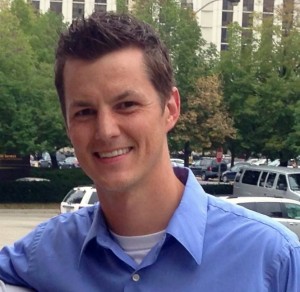Earlier this week I reviewed Barnabas Piper’s book The Pastor’s Kid. He graciously consented to answering a few questions about it, for which I am grateful.
Barnabas, I’d like to thank you for your book. I think you did a great job in it of highlighting the unique challenges that PK’s face. As a pastor, it led me to do some real soul-searching. So, again, thank you. I’ve read books before by the sons of prominent Christians that I did not think were respectful, that I thought might have violated the fifth commandment even. When you set out to write this, how did you seek to avoid committing the sin of Ham, of uncovering your father’s nakedness as it were?
I went into aware that there would be numerous opportunities to disparage my dad and mom. I’ve seen some of those expose type works. The only way I knew to avoid slipping into that was by reminding myself regularly of “honor your father and mother” – it echoed in my mind as I wrote. The other way was to remember that I was writing of grace, of reconciliation to God. If I want to represent those well to other people I have to show that they are real in my relationship with my own parents. Last, I love my parents and don’t want to do them any harm (emotionally or otherwise). Love seeks to build up, not tear down.
Have you received any kickback from the book, perhaps from big fans of your father and his work who might feel threatened by this?
Not yet. I suspect it will come at some point from somewhere or other. So far the feedback has been primarily from fellow PKs who have connected with the book deeply and express they’re gratitude for it. They don’t know how encouraging that is.
As I read your words distinguishing between “the faith” and your parents’ “version of the faith,” I could not help but think of Calvinism in particular. Some expressions of the Reformed community get close to conflating these ideas. I am thinking here of Spurgeon’s statement that “Calvinism is the gospel.” (For the record, despite that unfortunate statement, I am a fan of Spurgeon!) Are you a Calvinist? Do you think one must be to be a Christian? How much does growing up in the Reformed subculture of Christianity come to play in this?
In general I refuse to answer the question of whether I am a Calvinist or not. From my perspective, that of one who grew up in the reformed movement, almost no good comes from boldly labeling one’s self a Calvinist. Soteriology, an understanding of God’s actions in the salvation of sinners, is important for all Christians. But forceful labels cloud the issue more than they help. In the current theological and ecclesiological milieu I would like to avoid the labels of Calvinist and Arminian and all their baggage. If someone is interested in a genuine exploration of how salvation comes about, that is a different story and something that matters.
I will answer the second question. No, you do not have to be a Calvinist to be a Christian. You have to have a saving faith in Jesus and recognize your need for him to take away your sins and give you his righteousness. And you have to submit to Him as the perfect Lord of your life. That’s what you need to be a Christian.
How many of the struggles you have faced are a result of being a pastor’s son and how many are a result of being the son of Christian celebrity John Piper in particular? Is it a heightened phenomenon for you because of who your dad is?
I wondered the same thing before writing The Pastor’s Kid, so I reached out to several dozen PKs from around the country. Most of them were from “normal” churches, those without celebrity pastors, and their experiences mirrored mine to an uncanny degree. What I wrote in the book was not just my story but an amalgamation of numerous PKs’ stories into one. The life examples I gave are mine, but the larger principles are ours as PKs.
Being the child of a celebrity pastor has added a level of pressure, certainly. It is a challenge living one’s spiritual life, for good or ill, in a public way. It leaves little room for mistakes or doubt. That said, I’ve made enough mistakes and doubted enough to learn how to navigate them!
I appreciated your seven suggestions to folks concerning approaching PK’s that you provide at the end of the book. As a result of them, I’m going to try desperately to avoid asking you the one question about your father that I want to know: did he grow up a South Carolina or Clemson fan? Since I know that’s rude, I will not ask, even though I’m from South Carolina and want to know. (See what I’m doing here?)
Well then I won’t tell you that he grew up the son of a Clemson fan. I never once heard the name “Gamecocks” uttered from my grandfather’s or father’s lips. And I won’t tell you that my dad has little or no rooting interest at this point.

